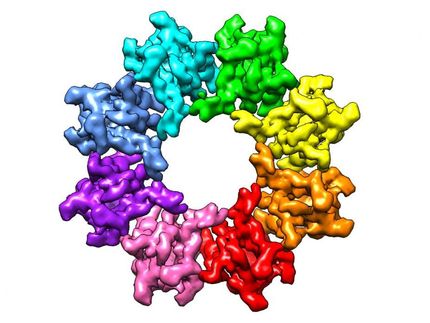Genzyme Launches New Diagnostic Test for Common Blood Cancer
p53 Mutation Analysis Offers Critical Prognostic and Predictive Information for B-Cell Chronic Lymphocytic Leukemia
Genzyme Corporation announced the availability of its p53 mutation analysis for B-cell chronic lymphocytic leukemia (B-CLL). P53 is a tumor suppressor gene that stops cell division when DNA damage is present. When the p53 gene does not function normally, genetic mutations that can occur in dividing cells remain unchecked, thereby leading to the accumulation of abnormal, malignant cells. Mutations in p53 are present in greater than 50 percent of all human cancers, including colon, breast, lung, bladder, brain, liver, and hematological malignancies.
A significant number of patients with B-CLL have a dysfunctional p53 gene caused by mutations and deletions, and this number increases as the disease progresses. Studies show that p53 is a poor prognostic factor in B-CLL.
Currently, physicians generally test for p53 deletions using a technology known as "fluorescent in-situ hybridization" (FISH). FISH detects a deletion of a fragment of chromosome 17 that bears the p53 gene. However, B-CLL patients may have a p53 deletion, mutation, or both. Genzyme's new test is a gene sequencing assay that detects specific mutations in the p53 gene with a higher degree of sensitivity than FISH alone, thereby providing more comprehensive diagnostic information for high-risk patients. With the new availability of the p53 Mutation Analysis, Genzyme is expanding its diagnostic menu for B-CLL patients. The company also offers a minimal residual disease test, which detects very low levels of disease in B-CLL patients.
Most read news
Topics
Organizations
Other news from the department research and development

Get the analytics and lab tech industry in your inbox
By submitting this form you agree that LUMITOS AG will send you the newsletter(s) selected above by email. Your data will not be passed on to third parties. Your data will be stored and processed in accordance with our data protection regulations. LUMITOS may contact you by email for the purpose of advertising or market and opinion surveys. You can revoke your consent at any time without giving reasons to LUMITOS AG, Ernst-Augustin-Str. 2, 12489 Berlin, Germany or by e-mail at revoke@lumitos.com with effect for the future. In addition, each email contains a link to unsubscribe from the corresponding newsletter.





















































